I froze the ioSafe Solo Hawk SSD in a block of ice, and it still works
posted Friday, September 13, 2019 at 2:30 PM EDT
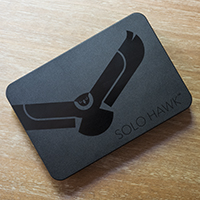
When evaluating hard drives, rare is the instance where I get to really stress test something. Like really stress it. Drives like the G-Tech ArmorATD and the LaCie Rugged are designed to get banged around, but within certain constrained parameters. They are designed to be shipped in FedEx boxes, not dropped down a flight of stairs or plunged into the ocean.
But there is one drive that actually is designed to withstand all that, the brand new ioSafe Solo Hawk, a portable SSD that is nearly over-engineered with protection against the craziest stuff that your storage drives might come in contact with.
Before we get into the absolutely bonkers protection this drive gives your data, let's first look at how it performs. The Solo Hawk is outfitted with an SSD in 500GB to 1TB capacities and supports both Mac and PC. I will say, it did not initially work on my Mac, but that was easy to fix after a quick reformat. It uses a USB Type-C connecter with USB 3.2 Gen 2 protocol, which allows for 10 Gpbs theoretical maximum throughput.
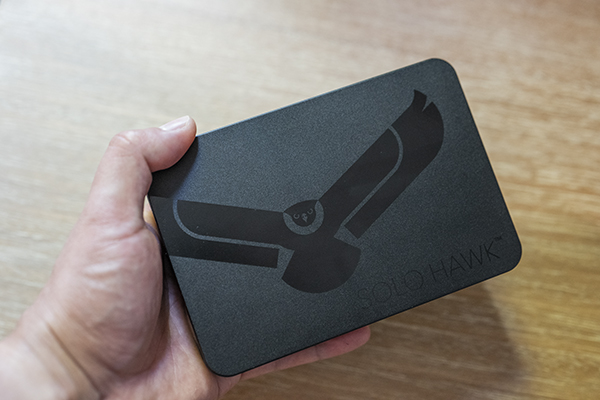
Let's take a look at the out-of-the-box speeds using both a USB-A to USB-C cable, and the standard USB-C to USB-C cable:
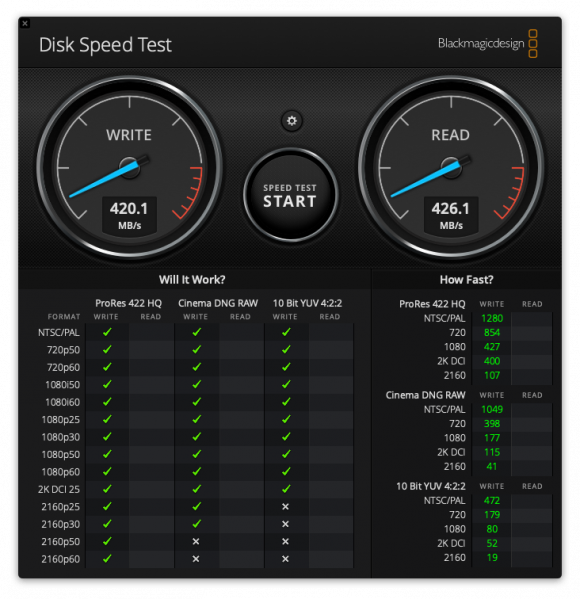
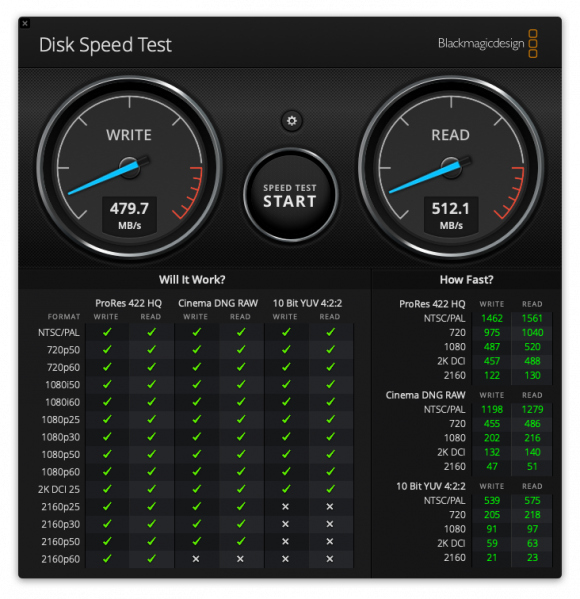
What I want to point out is that I am not sure what SSD ioSafe is using inside the Solo Hawk, but I did notice a considerable amount of speed oscillation in testing. Though the speeds I'm showing above are a sample, very rarely did the same peak speeds show in any given test over a period of time. Additionally, I would see some serious peaks in performance before slowly ramping down to the numbers shown above.
In the case of USB-A to USB-C, the write speed seemed to slowly climb through the testing phase, starting at well below 100 Mb/s before it started to gather "momentum" and settle at the numbers shown above.
Meanwhile, in USB-C to USB-C, speeds shot up very fast initially, and then dropped before settling on the final numbers shown above.
This isn't entirely unique behavior to the Solo Hawk, and it is also not necessarily a bad thing, but I thought it worth pointing out.
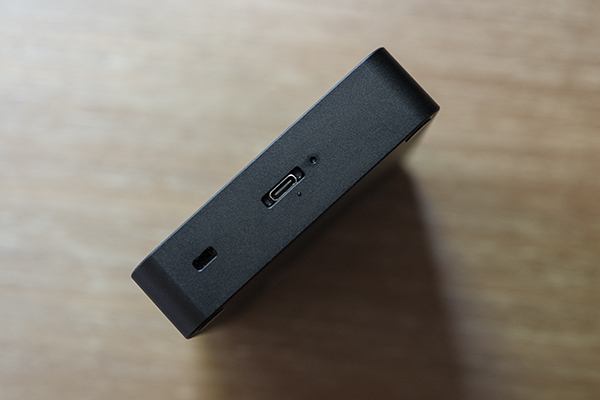
Alright, that aside, let me go over all these crazy specs the Solo Hawk can withstand:
- 10 foot drop
- 3 days immersion in 10 feet of fresh or salt water
- Full immersion in diesel fuels, oils, hydraulic fluids and aircraft fuels at a 12 foot depth for 1 hour
- Crush resistant up to 2500 pounds
- Rain, freezing rain, blowing dust and sand, salt fog, UV and ice protection
- 30,000 foot altitude
So while the ArmorATD we recently reviewed is stated to withstand a drop of 3.3 feet and the latest LaCie Rugged RAID Shuttle can handle 4 feet, the Solo Hawk can take 10, with no statements of whether that means concrete, steel or carpeted floors (the Armor ATD says 3.3 feet to carpet or concrete, which is in retrospect an odd statement to make).
The only waterproof hard drive that I've tested other than the Solo Hawk is the G-Tech ev ATC, but that can only survive in a foot of water for 30 seconds. In my testing, I threw that drive in the ocean for a few minutes of battering by waves and it was ok, but full submersion was limited as they state.
The Solo Hawk laughs in the face of those 30 seconds with its robust 3 days in 10 feet of water, 10 times the depth and a whopping 8640 times the length of time in submersion.
Look, that's absolutely bananas.
The other drives that I compare the Solo Hawk to only resist pressure, with few stating how many pounds they can take, while the Solo Hawk can withstand the weight of a loaded semi truck.
ioSafe told me that they rate it to withstand temperatures between -20 and 50 degrees Celsius (-4 to 122 degrees F) while operating, and -40 to 85 degrees Celsius (-40 to 185 degrees F) when not operating.
The Solo Hawk can also operate at 5%-80% (non condensing) humidity, which I'm not entirely sure how to measure, but I had an idea that I wanted to try out which tested two of the Solo Hawk's stated protections at once: submerging it in water in my freezer for over 24 hours.
This is how it looked the next day:
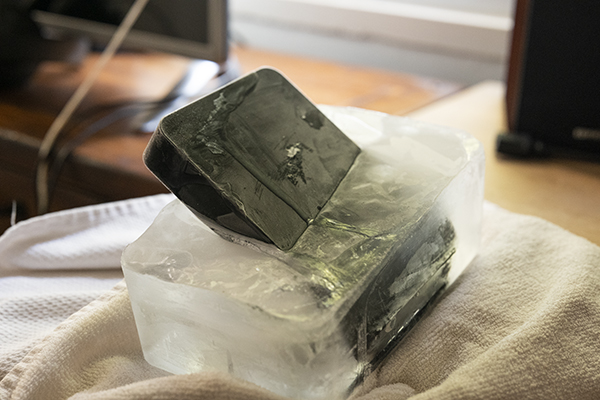
But does it still work? I first tested the USB-A to USB-C cable on the drive and it lit up momentarily before going dark. I thought that was a bit odd, but decided to give it a bit more power by using USB-C to USB-C.
That instantly brought the drive to life, and after this point the USB-C to USB-A cable also worked without a problem.
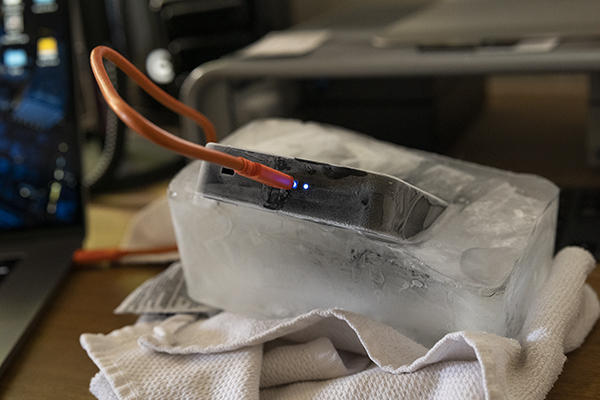
So yes, not only can the drive survive for elongated periods in your freezer, it can do so while also submerged in the ice. Oh, and it will operate in this state as well. I will say, I decided to test the drive to see if it suffered from any hampered performance while it was in this frozen state, and it does:
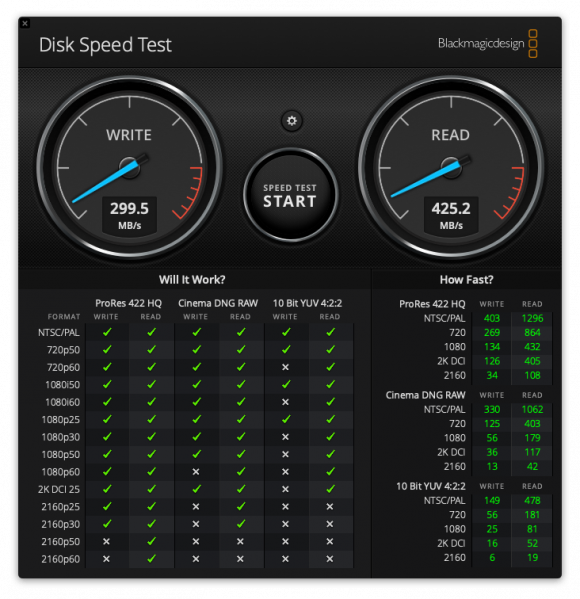
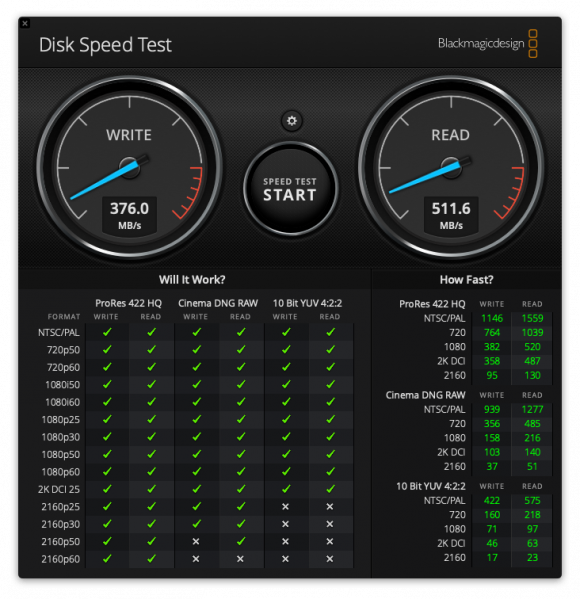
It's not substantial, but the low temperature did affect the drive's speed both in USB-C to USB-C and USB-A to USB-C. Once the drive thawed and was dried off, however, speeds returned to normal.
Oh, and I didn't notice the operating humidity specifications I went through above before doing this test, and I don't know if it should have been able to operate while submerged and also frozen, but it did, which is pretty awesome. So... I guess, don't try this at home (but if you do you're probably going to be ok).
As a note, since I wanted to test the drive while it was still in a block of ice, I left the USB-C port open to the air when I submerged it. Though it is possible this protected the only point of entry for water, I did also defrost the thing in my sink fully submerged under running water. It still works. I'm willing to take iOSafe at the word for the water proofing given the circumstances.
I didn't happen to have buckets of aircraft fuel sitting around the house, but it's nice to know the Solo Hawk can supposedly be just fine if it's accidentally dropped in one. I don't know how many people that is going to happen to, but if you're one of them... good news!
This is going to sound like nitpicking or something, but I am a bit disappointed in one thing the Solo Hawk doesn't protect against: fire. It has a relatively tame maximum temperature it can withstand at just 85 degrees Celsius, and a house fire is absolutely going to fly right past those protection marks.
Like, I understand I'm complaining about a drive not protecting against one natural disaster when it clearly can fight off a few others, but I personally believe a house fire is far more likely to happen than my drive falling into a bucket of kerosene or diesel fuel. Even for the beyond average consumer who this drive is aimed at, the protections it affords are really fringe compared to actual disasters that happen every day.
All that, and the one thing I associate with the ioSafe brand is fire protection. Their most well known products are designed to keep your data safe in the event of a house fire, and I think that's a really good place to position yourself. Those happen. Me even being within 100 feet of open aircraft fuel is... not going to happen.
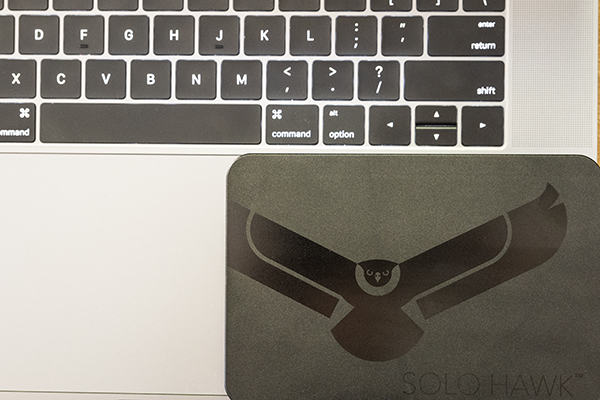
As far as pricing goes, the Solo Hawk retails for $319 for the 500GB version, and $399 for the 1TB version. This pricing, when compared to what competitors do, makes no sense and I absolutely love it. You can double your storage capacity on this thing for $80, which even feels crazy to type. Usually doubling capacity doubles price, but ioSafe is shirking that trend. It's clear that what costs the most on this product isn't the storage capacity inside, but the housing around it. For a product like this, that's exactly what you like to see.
Pros:
- Sleek, all-black design looks pretty sick
- Ridiculously well protected, outperforming every drive I have ever tested for water and drop proof design
- You can spill airplane fuel on it, and it'll be fine
- Laughs in the face of ice, sandstorms and salt fog
- Can operate while simultaneously frozen into a block of ice
- Crazy protection specs aside, it's very fast as well
- Excellent pricing: $399 for 1TB and $319 for 500GB
Cons:
- Cannot protect against fire damage, the most likely of disasters aside from submersion in water
- Heavier than all competitor products for what should be obvious reasons
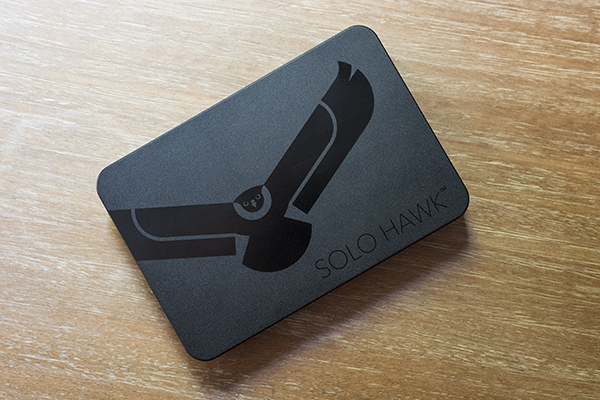
The ioSafe Solo Hawk is an absolutely outstanding product that excels at what it is designed to do. It's fast, preposterously well engineered to withstand exceedingly more damage than any other competitor product even comes close to, and even looks pretty nice while doing it. Though it is a shame it's not capable of keeping your data safe in the event of a fire, it will do so under pretty much any other condition out there. I think this would have even more widespread appeal if it was able to repel higher temperatures, but as it stands is the most protected drive I have ever tested.